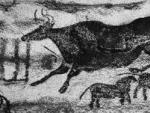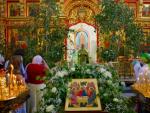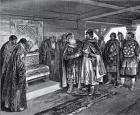Чарльз Диккенс; Charles Dickens — Топик по английскому языку. Скачать книги на английском языке Биография чарльза диккенса на английском
Charles Dickens
Charles Dickens is an English writer who is regarded as the greatest novelist of the Victorian era. He made an immense contribution to the world of literature.
Charles Dickens was born on the seventh of February in 1812 in Portsmouth. Charles was the second of eight children to John Dickens, a clerk in the Navy Pay Office, and his wife Elizabeth Dickens. When he was twelve, his father was imprisoned for debts. That was the turning point in his life and future career. His family lived in grinding poverty. Charles was withdrawn from school and forced to earn his living to support the family. His youth was full of hardships and humiliation. The cruel working conditions at the blacking-warehouse greatly influenced his psychological state. Charles had first-hand knowledge of slums, shelters for the poor, exploitation of children and debtors" prisons. Even later on he couldn"t lay a ghost.
Dickens started his career as a reporter and soon won the recognition among readers. However, his goal was to gain a footing in society. In 1836, under the pseudonym "Boz", which, according to several sources, was taken from a childhood nickname of his younger brother, Dickens published his first book, a collection of stories titled "Sketches by Boz". In his works Dickens tried to show that in contrast to the life of the poor, the wealthy in London got on in life during the nineteenth century. His second work "the Posthumous Papers of the Pickwick Club" was a great success. All of a sudden Dickens became a popular writer. In 1838 he published another novel titled "Oliver Twist". He told us a story about an orphan who was born in the London"s slums. The main character fell into a den of thieves, but was finally rescued by a wealthy benefactor. The novel drew a wide public response. There were scandalous investigations in workhouses which, actually, functioned as semi prisons, and where children were exploited for labor. In 1849-1850 Dickens published the largely autobiographical novel "David Copperfield" which brought European glory to him.
By the middle age Dickens achieved everything he had dreamt about in his childhood. However, being in a state of melancholy, he wished more acutely to eradicate evils and injustice. He was deeply disturbed and distressed by this problem.
Charles Dickens died at home on the ninth of June in 1870 after suffering a stroke. He was buried in the Poets" Corner of Westminster Abbey. The inscription on his tomb reads: "He was a sympathizer to the poor, the suffering, and the oppressed; and by his death, one of England"s greatest writers is lost to the world".
Charles Dickens will always be remembered as a prominent writer and a fighter for justice.
Чарльз Диккенс
Чарльз Диккенс - английский писатель, который считается величайшим романистом Викторианской эпохи. Его вклад в мировую литературу бесценен.
Чарльз Диккенс родился седьмого февраля 1812 года в Портсмуте. Чарльз был вторым из восьмерых детей, родившихся в семье Джона Диккенса, чиновника морского ведомства, и Элизабет Диккенс. Когда ему исполнилось двенадцать лет, его отца посадили в долговую тюрьму. Это и стало поворотной точкой в его жизни и будущей карьере. Его семья вынуждена была жить в нищете. Чарльзу пришлось уйти из школы и самому зарабатывать на жизнь, чтобы содержать семью. Его юность была полна тягот и унижений. Суровые условия на фабрике по производству ваксы, где он работал, сильно повлияли на психологическое состояние Чарльза. Он не понаслышке знал о трущобах, приютах для бедных, эксплуатации детей и долговых тюрьмах. И даже впоследствии ему не удалось избавиться от призраков прошлого.
Диккенс начал свою карьеру в качестве репортера и вскоре получил признание читателей. Однако его целью было занять достойное положение в обществе. Так, в 1836 году, под псевдонимом «Боз», по некоторым источникам это была кличка его младшего брата, Диккенс публикует свою первую книгу, сборник рассказов под названием «Очерки Боза». В своих работах Диккенс пытается показать контраст между жизнью бедных и богатых в Лондоне девятнадцатого века. Его вторая книга «Посмертные записки Пиквикского клуба» приносит Диккенсу невероятный успех. Неожиданно для всех Диккенс становится популярным писателем. В 1838 году он публикует еще один роман под названием «Оливер Твист», в котором описывает историю мальчика-сироты, родившегося в трущобах Лондона. Главный герой романа попадает в воровской притон, но в конце книге его спасает состоятельный благодетель. Роман получил широкий общественный резонанс. После его выхода в работных домах Лондона, которые фактически являлись тюрьмами, где использовался детский труд, прошли скандальные разбирательства. В 1849-1850 годах Диккенс публикует автобиографический роман «Дэвид Копперфилд», который приносит ему общеевропейскую славу.
К средним годам Диккенс достиг всего, о чем мечтал в детстве. Однако, часто находясь в состоянии меланхолии, он особенно остро хотел искоренить зло и несправедливость. Это беспокойство истощало все его жизненные силы.
Чарльз Диккенс умер дома девятого июня в 1870 году после перенесенного инсульта. Он похоронен в Вестминстерском аббатстве в «уголке поэтов». Надпись на его надгробии гласит: «Он сочувствовал бедным, страдающим и угнетенным. После его смерти мир утратил одного из величайших английских писателей».
Чарльз Диккенс всегда останется в нашей памяти выдающимся писателем и борцом за справедливость.
Vocabulary:
1) novelist
["novelist] - писатель-романист
2) to make an outstanding/immense contribution (to) - вносить
огромный вклад
3) to imprison - заключать в тюрьму, лишать
сво¬боды
4) to live in grinding poverty - нуждаться, жить в крайней нужде
5) to earn one"s living - зарабатывать на жизнь
6) to support a family - содержать семью
7) hardships ["haidjips] - невзгоды, лишения, муки, тяготы жизни
8) humiliation - унижение
9) to have first-hand knowledge of something - не понаслышке
знать о чем-либо
10) slums - трущобы
11) shelter for the poor - приют для бедных
12) to lay a ghost - избавиться от призрака прошлого, покон¬чить
с прошлым
13) to win the recognition - получить признание
14) the wealthy - богатые, богачи
15) orphan - сирота
16) den of thieves - воровской притон
17) benefactor ["bemfaekts] - благодетель, покровитель
18) to draw a wide response - вызывать большой резонанс
19) workhouse ["w3:khaus] - работный дом (дом призрения для
бедняков с жестким режимом и обязательной работой в пользу
благотворительных обществ и приходов)
20) to bring glory to somebody - приносить славу
21) eradicate - истреблять, искоренять
22) injustice - несправедливость
23) stroke - паралич, удар, инсульт
24) tomb - могила, надгробие
25) sympathizer ["simpaGaiza] - сочувствующий, сторонник
26) fighter for justice - борец за справедливость
Описание презентации по отдельным слайдам:
1 слайд
Описание слайда:
2 слайд
Описание слайда:
Charles Dickens was an English writer born in 1812 in Portsmouth, England, the second of John and Elizabeth Dickens"s eight children, Charles was raised with the assumption that he would receive an education and, if he worked hard, might some day come to live at Gad"s Hill Place, the finest house on the main road between Rochester and Gravesend. But John Dickens, on whom Mr. Micawber is based, moved the family to London in 1823, fell into financial disaster, was arrested for debt and imprisoned in the Marshalsea Debtors" Prison. Charles was forced to go to work at Warren"s Blacking Factory at Hungerford Stairs labeling bottles.
3 слайд
Описание слайда:
Dickens was able to continue his education after his father received a legacy from a relative and was released from the Marshalsea. Charles attended Wellington House Academy from 1824 to 1826 before taking work as a clerk in Gray"s Inn for two years. In order to qualify himself to become a newspaper parliamentary reporter. Dickens"s first published piece appeared in the December, 1833, number of the Monthly Magazine , followed by nine others, the last two appearing over the signature "Boz," a pseudonym Dickens adopted from a pet name for his younger brother.
4 слайд
Описание слайда:
On April 2, 1836, Dickens married Catherine Hogarth, daughter of George Hogarth, with whom Dickens worked on the Morning Chronicle. Catherine and Charles had ten children before they separated in 1858.
5 слайд
Описание слайда:
The introduction of Sam Weller into the fourth number of Pickwick Papers (1836-37) launched the most popular literary career in the history of the language. Pickwick Papers became a publishing phenomenon, selling forty thousand copies of every issue. Published in twenty monthly installments, Pickwick took England by storm: Judges read it on the bench, doctors in the carriages between visiting patients, boys on the street.
6 слайд
Описание слайда:
Even as Pickwick Papers was enjoying its huge success, Dickens started Oliver Twist; or The Parish Boy"s Progress in January, 1837; it continued in monthly numbers through 1838. In Oliver , Dickens explores the social evils attendant upon a political economy that made pauperism the rule rather than the exception. Oliver flees the cruel Somersby where he is apprenticed as an undertaker, having been sold to them by the workhouse for daring to ask for more - food, love, nutrition, warmth - and seeks his fortune in the criminal slum world of London proper.
7 слайд
Описание слайда:
Dealings with the Firm of Dombey and Son appeared in seventeen monthly numbers from January, 1847, through April 1848, the last being a double number. In this work Dickens is able to integrate his criticism of the social philosophy dominating nineteenth-century England into the structure of the novel itself, as he will continue to do in Bleak House, Hard Times, Little Dorrit, and Our Mutual Friend. Dombey and Son investigates the callous indifference of an economic system that places the cash nexus before human relations.
8 слайд
Charles Dickens
Charles Dickens is an English writer who is regarded as the greatest novelist of the Victorian era. He made an immense contribution to the world of literature.
Charles Dickens was born on the seventh of February in 1812 in Portsmouth. Charles was the second of eight children to John Dickens, a clerk in the Navy Pay Office, and his wife Elizabeth Dickens. When he was twelve, his father was imprisoned for debts. That was the turning point in his life and future career. His family lived in grinding poverty. Charles was withdrawn from school and forced to earn his living to support the family. His youth was full of hardships and humiliation. The cruel working conditions at the blacking-warehouse greatly influenced his psychological state. Charles had first-hand knowledge of slums, shelters for the poor, exploitation of children and debtors" prisons. Even later on he couldn"t lay a ghost.
Dickens started his career as a reporter and soon won the recognition among readers. However, his goal was to gain a footing in society. In 1836, under the pseudonym "Boz", which, according to several sources, was taken from a childhood nickname of his younger brother, Dickens published his first book, a collection of stories titled "Sketches by Boz". In his works Dickens tried to show that in contrast to the life of the poor, the wealthy in London got on in life during the nineteenth century. His second work "the Posthumous Papers of the Pickwick Club" was a great success. All of a sudden Dickens became a popular writer. In 1838 he published another novel titled "Oliver Twist". He told us a story about an orphan who was born in the London"s slums. The main character fell into a den of thieves, but was finally rescued by a wealthy benefactor. The novel drew a wide public response. There were scandalous investigations in workhouses which, actually, functioned as semi prisons, and where children were exploited for labor. In 1849-1850 Dickens published the largely autobiographical novel "David Copperfield" which brought European glory to him.
By the middle age Dickens achieved everything he had dreamt about in his childhood. However, being in a state of melancholy, he wished more acutely to eradicate evils and injustice. He was deeply disturbed and distressed by this problem.
Charles Dickens died at home on the ninth of June in 1870 after suffering a stroke. He was buried in the Poets" Corner of Westminster Abbey. The inscription on his tomb reads: "He was a sympathizer to the poor, the suffering, and the oppressed; and by his death, one of England"s greatest writers is lost to the world".
Charles Dickens will always be remembered as a prominent writer and a fighter for justice.
Чарльз Диккенс
Чарльз Диккенс - английский писатель, который считается величайшим романистом Викторианской эпохи. Его вклад в мировую литературу бесценен.
Чарльз Диккенс родился седьмого февраля 1812 года в Портсмуте. Чарльз был вторым из восьмерых детей, родившихся в семье Джона Диккенса, чиновника морского ведомства, и Элизабет Диккенс. Когда ему исполнилось двенадцать лет, его отца посадили в долговую тюрьму. Это и стало поворотной точкой в его жизни и будущей карьере. Его семья вынуждена была жить в нищете. Чарльзу пришлось уйти из школы и самому зарабатывать на жизнь, чтобы содержать семью. Его юность была полна тягот и унижений. Суровые условия на фабрике по производству ваксы, где он работал, сильно повлияли на психологическое состояние Чарльза. Он не понаслышке знал о трущобах, приютах для бедных, эксплуатации детей и долговых тюрьмах. И даже впоследствии ему не удалось избавиться от призраков прошлого.
Диккенс начал свою карьеру в качестве репортера и вскоре получил признание читателей. Однако его целью было занять достойное положение в обществе. Так, в 1836 году, под псевдонимом «Боз», по некоторым источникам это была кличка его младшего брата, Диккенс публикует свою первую книгу, сборник рассказов под названием «Очерки Боза». В своих работах Диккенс пытается показать контраст между жизнью бедных и богатых в Лондоне девятнадцатого века. Его вторая книга «Посмертные записки Пиквикского клуба» приносит Диккенсу невероятный успех. Неожиданно для всех Диккенс становится популярным писателем. В 1838 году он публикует еще один роман под названием «Оливер Твист», в котором описывает историю мальчика-сироты, родившегося в трущобах Лондона. Главный герой романа попадает в воровской притон, но в конце книге его спасает состоятельный благодетель. Роман получил широкий общественный резонанс. После его выхода в работных домах Лондона, которые фактически являлись тюрьмами, где использовался детский труд, прошли скандальные разбирательства. В 1849-1850 годах Диккенс публикует автобиографический роман «Дэвид Копперфилд», который приносит ему общеевропейскую славу.
К средним годам Диккенс достиг всего, о чем мечтал в детстве. Однако, часто находясь в состоянии меланхолии, он особенно остро хотел искоренить зло и несправедливость. Это беспокойство истощало все его жизненные силы.
Чарльз Диккенс умер дома девятого июня в 1870 году после перенесенного инсульта. Он похоронен в Вестминстерском аббатстве в «уголке поэтов». Надпись на его надгробии гласит: «Он сочувствовал бедным, страдающим и угнетенным. После его смерти мир утратил одного из величайших английских писателей».
Чарльз Диккенс всегда останется в нашей памяти выдающимся писателем и борцом за справедливость.
Vocabulary:
1) novelist
["novelist] - писатель-романист
2) to make an outstanding/immense contribution (to) - вносить
огромный вклад
3) to imprison - заключать в тюрьму, лишать
сво¬боды
4) to live in grinding poverty - нуждаться, жить в крайней нужде
5) to earn one"s living - зарабатывать на жизнь
6) to support a family - содержать семью
7) hardships ["haidjips] - невзгоды, лишения, муки, тяготы жизни
8) humiliation - унижение
9) to have first-hand knowledge of something - не понаслышке
знать о чем-либо
10) slums - трущобы
11) shelter for the poor - приют для бедных
12) to lay a ghost - избавиться от призрака прошлого, покон¬чить
с прошлым
13) to win the recognition - получить признание
14) the wealthy - богатые, богачи
15) orphan - сирота
16) den of thieves - воровской притон
17) benefactor ["bemfaekts] - благодетель, покровитель
18) to draw a wide response - вызывать большой резонанс
19) workhouse ["w3:khaus] - работный дом (дом призрения для
бедняков с жестким режимом и обязательной работой в пользу
благотворительных обществ и приходов)
20) to bring glory to somebody - приносить славу
21) eradicate - истреблять, искоренять
22) injustice - несправедливость
23) stroke - паралич, удар, инсульт
24) tomb - могила, надгробие
25) sympathizer ["simpaGaiza] - сочувствующий, сторонник
26) fighter for justice - борец за справедливость
Чарльз Диккенс биография на английском языке представлена в этой статье.
Чарльз Диккенс краткая биография на английском
Charles Dickens was an English writer born in 1812 in Portsmouth, England. He was the son of John Dickens and Elizabeth nee Barrow. Dickens’ father served as a clerk in the Navy Pay Office. He was always a very amiable man, extremely big-hearted in a naïve sort of way, which resulted in him undergoing major financial worries for the major part of his life. The inspiration of the character of Mr. Micawber was drawn from his father’s life. Dickens also had siblings – an older brother called Frances and 6 younger siblings.
When his father was relocated to Chatham in Kent, Dickens’ family also shifted to a large and refined home with two servants to wait on them. One of the servants was called Mary Weller who was also Charles’ nursemaid. Charles was an ardent reader – he particularly liked reading the works of Oliver Goldsmith, Henry Fielding and Daniel Defoe. He attended the school of William Giles, and was a brilliant student. However, when he wasn’t studying, his siblings and he would start making up games of their own and play them, he would recite poetry and songs, and also created his own theatrical productions, which ignited an eternal love of theatre in him. Unfortunately, in 1824, his household expenses rose alarmingly and his father was imprisoned for being in debt. The entire family went with John Dickens with the exception of Charles who at that time was 12 years old and was sent to Warren’s Shoes Blacking Factory, in order to extend support to the family by pasting labels on boxes. He resided in a boarding house in Camden House and used to walk to work everyday. He would go and meet his father every Sunday.
This was a very crucial turning point in Dicken’s education i.e. when he completed his education from the University of Hard Knocks, which he carried with him for the remainder of his life. The ideal days of his childhood were over and he was exposed to the harsh realities of the practical world, especially the working poor, where child labour was extensive and there were very scarce adults who ever had any word of kindness for the children. His future novels such as Phillip Pirrip, David Copperfield and Oliver Twist were drawn considerably from his own experiences. Squalor, meager wages and strenuous hours were typical of that time period, but the worst part was when his mother insisted that he work there, which resulted in a life-long resentment towards her. However, fortunately for him, his father was released soon after that and arranged for him to take classes at the Wellington House Academy in London, saving him from an otherwise impoverished living and setting him on the path to become a writer.
Charles Dickens was born in 1812. He lived in the south of England when he was a little boy His father worked in an office. He was a very clever man, but he was very poor. Charles had many brothers and sisters, but he did not often play with them. His father had many books and Charles liked to read them. He learned to read very early.
When Charles was 10 years old, his family went to London.
There his father got into debt (as he had little money) and then into debtor’s prison. So little Charles began to work when he was ten. That was the beginning of Charles’ hard life. He worked at a small factory in London, pasting labels on blacking bottles.
He had to work in a dirty room with no windows. He did not like his work, but he had to work at the factory for two years. Then he went to school for three years, but he did not learn much at school. He learned much at home, from his father and from other clever people.
Later he worked as a reporter to the Parliament and became a writer of short stories.
In 1837 he published his first novel The Posthumous Papers of the Pickwick Club. And the young reporter became a famous writer. Then he published novel after novel - Oliver Twist, Dombey and Son, David Copperfield and many other good books.
His books are very interesting, they tell us about the hard life of the poor people in England of that time. When we read his books, we sometimes laugh, but we often want to cry.
Charles Dickens died in 1870.
He is one of the greatest novelists in the English literature. Dickens lived more than a hundred years ago, but people in the whole world like to read his books today, because in his books he showed a real world and people of Victorian England.
Чарлз Диккенс
Чарлз Диккенс родился в 1812 году В детстве он жил на юге Англии Его отец работал в конторе. Он был очень умным, но очень бедным человеком. У Чарлза было много братьев и сестер, но он редко с ними играл У его отца была большая библиотека, и Чарлз любил читать. Читать он научился рано.
Когда Чарлзу было десять лет, его семья переехала в Лондон.
Там его отец залез в долги (поскольку у него было мало денег) и затем попал в долговую тюрьму. Поэтому маленький Чарлз начал работать в десять лет. Это было началом тяжелой жизни Чарлза.
В Лондоне он работал на маленькой фабрике, где наклеивал этикетки на бутылочки с ваксой. Ему приходилось работать в грязной комнате, где не было окон. Работа ему не нравилась, но он проработал на фабрике два года. Затем он три года учился в школе, однако там он немногому научился. Гораздо больше он узнал дома, от отца и других умных людей.
Позже он работал репортером по вопросам деятельности парламента и начал писать рассказы.
В 1837 г. он опубликовал свой первый роман Посмертные записки Пиквикского клуба. И после этого молодой репортер стал известным писателем. Затем он публиковал романы один за другим - Оливер Твист, Домби и сын, Давид Копперфилд и многие другие книги.
Его книги очень интересные, в них говорится о тяжелой жизни бедных людей в Англии того времени. Когда мы читаем его книги, то иногда смеемся, но часто нам хочется плакать.
Чарлз Диккенс умер в 1870 г. Он является одним из величайших романистов в английской литературе. Диккенс жил более ста лет назад, но и сегодня людям во всем мире нравится читать его книги, потому что в них он показал подлинный мир и людей, живших в викторианской Англии.








 Правило четное и нечетное
Правило четное и нечетное Междоусобицы на руси Причины первой междоусобицы
Междоусобицы на руси Причины первой междоусобицы Дивна любоевич: интервью
Дивна любоевич: интервью Бизнес на производстве квашеной капусты Сколько стоит в кулинарии нашинкованная капуста
Бизнес на производстве квашеной капусты Сколько стоит в кулинарии нашинкованная капуста